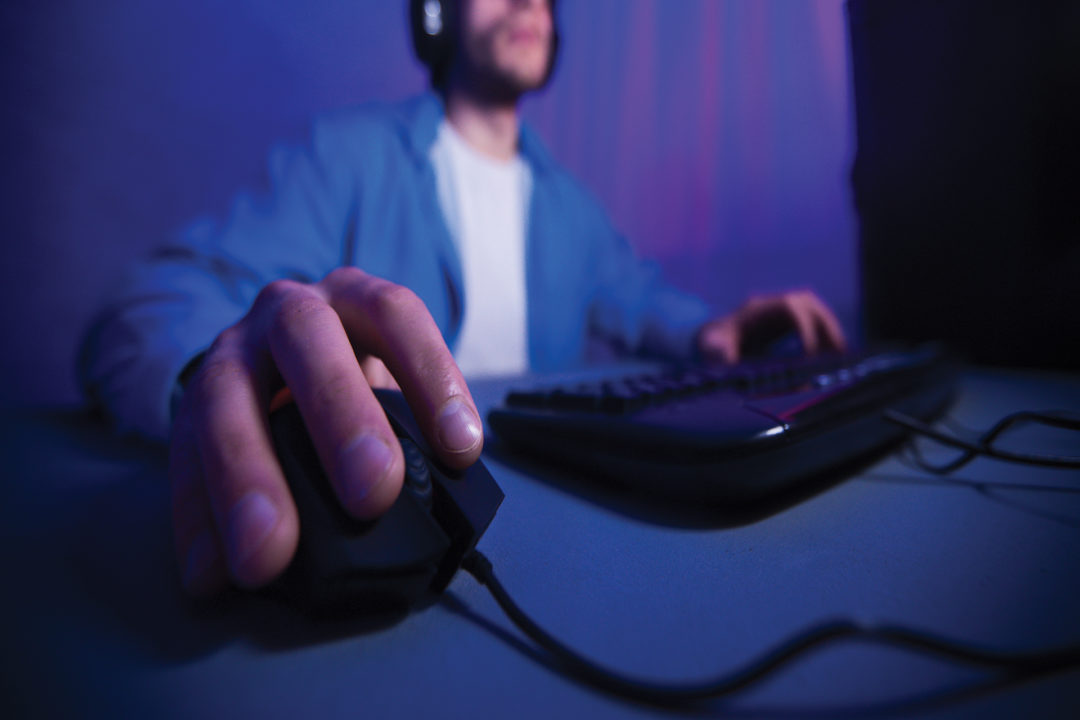Naturally Informedtook a look at an industry with massive potential during the session “E-Sports & Gaming: An Emerging Opportunity for Mental Performance and Agility,” which took place during the eventMental Wellness: Mastering the Marketin January 2021. It featured threee-gamingexperts, a detailed look at the industry, and a Q&A session.
Fabian Broich, Head of Performance, Excel Esports & Achievements, and Founder of Achieveminds, spoke first, highlighting the gamer lifestyle—and the unmet needs gamers have. “To be quite honest, it’s eat, sleep, play, repeat,” he told attendees. “Now if you look at eat, I would consider that one hour a day. They are eating, they are not really enjoying their food, they are just eating to feed themselves. They are not changing the area they are in. They are still in front of the computer. They are sleeping when they are not playing well anymore, they are not really aware of their tiredness, so they are sleeping around five to seven hours on average, and they play around 14 to 16 hours a day. And then if we look at the repeat cycle, there is overuse of cognitive load, of no movement, of basically just putting stuff into your body—fluid, any kind of nutrition… you can see that there will be—and have been—a lot of burnouts, a lot of diabetes, reduced blood flow in the bodies, and people actually retiring in their mid-20s, which is quite alarming.”
Unlike traditional sports, Broich explained, there are no coaches, no nutritional experts—just individuals, getting good at a game by playing it non-stop. “They have a huge drive to win, and are really good at making decisions inside of the game. Now, nutrition, physical activity, sleep, the mental aspect—they have no awareness of those, they don’t have awareness of themselves as a human being. If you are in a competitive environment, it’s a stress race, it is always about stress, and the person who recovers the best, regenerates the best, can focus the best, is always the person who’s going to be in flow, is going to be the person who is making the best decision at the best time, which is a key indicator for winning or losing.” Excel, he says, is working to change that, offering supports including an in-house chef to make sure players are eating properly, but that is far from the norm.
Nick Morgan, Nutrition Integrated, followed Broich with a dive into the products that are meeting those player needs, and what makes those products successful. His top tip? Dig in. “Gaming isn’t just about the performance of the people playing, but it’s also the lifestyle, the feeling of belonging that exists in this culture,” he shared.
Joshua Schall, Owner/President, J Schall Consulting, doubled down on that. “Gamers can sniff out imposters from a mile away,” he said. “They know who’s in the in-crowd. 55% of gamers have mentioned that brands try to sell them products that don’t really match up with the gaming community. Brands just throw some jargon in there like it’ll make them look like they know what’s going on, but it ends up hurting them more, because people know they’re an imposter. The Twitch community buys products or services just as much to be a part of the community as to actually have the product. Having a great product is just the entry fee to get into the market. It’s what you build off of that that matters. You have to build some authentic community, that makes the difference here. You need to understand the culture and support the community. Brands that want to get into this space should lean into partnerships, try to build communities.”
Morgan discussed the product market, noting that—even a year ago when the event happened—the landscape was already developing. “We as a business track all of the gaming-particular brands, products, and approaches within the U.S. and the EU—and there are already brands that are gaming-specific, but there’s also interest from adjacent markets, like nootropic brands positioning themselves for gaming. The stigma of e-gaming has kind of been broken—I know a lot of people who bought virtual reality headsets this Christmas, not just for their children, but for themselves, and more people are engaging, because actually it can be a lot of fun.”
As more brands try to cater to this growing population, Morgan told attendees that there are four approaches brands are taking: “You could be a gaming-specific brand—G Fuel is a good example of that. Your ethos, everything about you, is about gaming. You can launch a sub-range—My Protein is a leader in direct-to-consumer sports and active nutrition, and they’ve launched a gamer-specific sub-range with its own microsite. You could create a single gaming product—Ghost is a great example of that, they’ve launched a gaming product, with the same website as their whey protein and whatnot. Or, you could just adapt your current nootropic product, and write in the narrative or product description that it’s also relevant for gamers. I honestly don’t know the level of traction that will ever get, but needless to say, these approaches have different levels of investment, all of which likely have different results.”
All of that said, Morgan shared that 69% of brands only offer one product, and that there’s lots of similarity amongst products—most products contain caffeine in one way or another. Looking at differentiators, Scholl ran through case studies of brands that have done well in this industry. And all three of them gathered to answer audience questions including about common misconceptions and myths, the money being poured into the gaming industry, and tactics for getting into the industry—and all of this (and so much more) is available on-demand for free with registration onwww.NaturallyInformed.net.

2025 Natural Choice Awards
March 31, 2025








